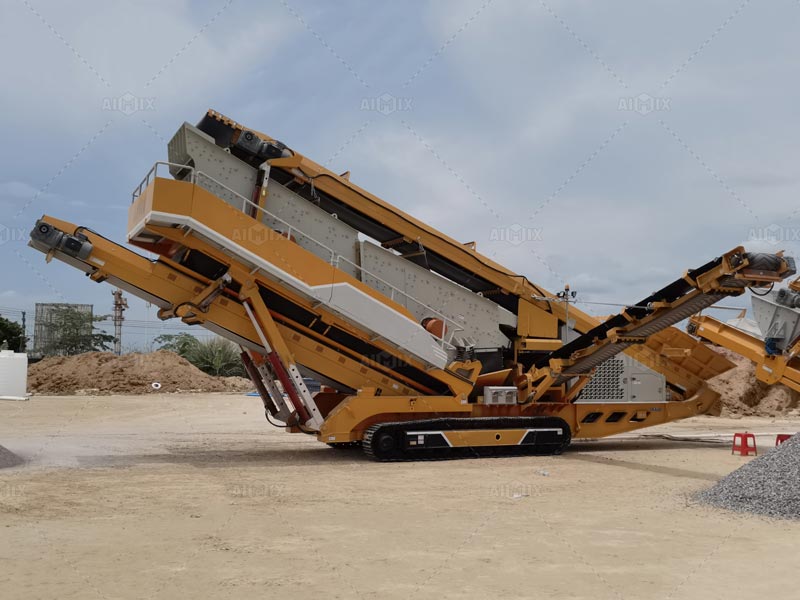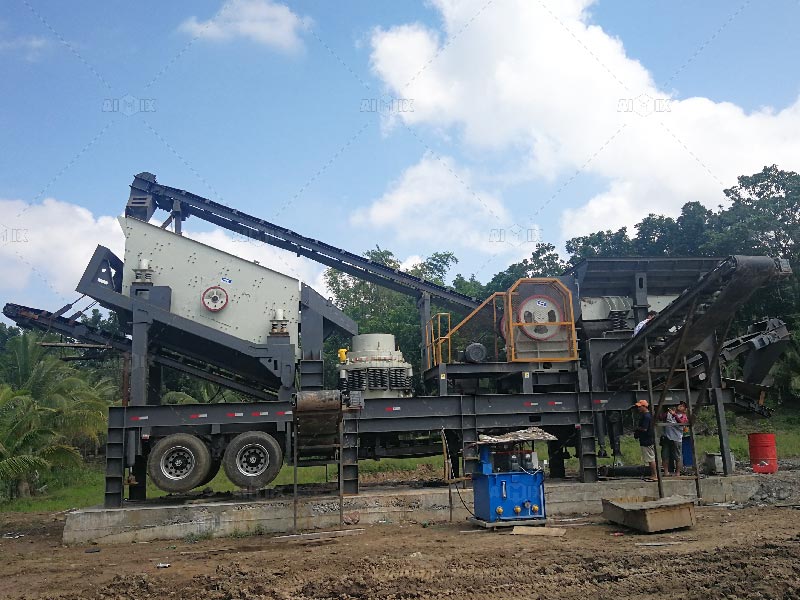Purchasing a mobile stone crusher plant can be a significant investment for businesses involved in construction, mining, or aggregate production. As the demand for high-quality aggregates continues to rise, understanding the costs associated with acquiring and operating a mobile stone crusher plant is crucial for making informed decisions. This article will explore the various factors that influence the cost of mobile stone crusher plants(plantas trituradoras móviles de piedra), allowing you to budget effectively and choose the right equipment for your needs.

Understanding Mobile Stone Crusher Plant Costs
When considering the purchase of a mobile stone crusher plant, it’s important to look beyond the initial price tag. The total cost of ownership includes several components, such as equipment purchase costs, operational expenses, and maintenance costs. This section will break down these factors in detail.
1. Initial Purchase Price
The first and most apparent cost associated with a mobile stone crusher plant is the initial purchase price. Prices can vary significantly based on several factors:
- Brand and Model: Different manufacturers offer various models with distinct features. Reputable brands often command higher prices due to their reliability and advanced technology.
- Specifications: The size, capacity, and performance specifications of the mobile stone crusher plant will influence the cost. Higher-capacity machines generally come with a higher price tag.
- Customization Options: Some manufacturers offer customization options that can tailor the aggregate crusher plant(la planta trituradora de agregados) to your specific needs. While this can enhance performance, it may also increase the overall cost.
2. Transportation and Setup Costs
Once you’ve purchased your mobile stone crusher plant, you need to consider transportation and setup costs. These include:
- Shipping Fees: If the equipment needs to be transported over a long distance, shipping fees can add up. Ensure you factor this into your budget.
- Installation Costs: Although mobile plants are typically easier to set up than stationary plants, you may still need professional assistance for installation and calibration, particularly for complex models.
3. Operational Costs
Operational costs are ongoing expenses that will affect your overall budget over time. Key components include:
- Fuel Costs: Mobile stone crusher plants often run on diesel or electricity. Fuel costs can fluctuate based on market prices, so it’s essential to consider how often you plan to operate the machine and calculate potential fuel expenses accordingly.
- Labor Costs: Depending on your operation’s size, you may need skilled labor to operate the mobile plant. Training costs should also be factored in if your staff requires special training to use the equipment effectively.
- Insurance: Insuring your mobile stone crusher plant against potential damages or accidents is another cost to consider. Shop around for insurance providers to find a policy that suits your needs and budget.
4. Maintenance Costs
Regular maintenance is essential to keep your mobile stone crusher plant running smoothly and efficiently. Maintenance costs can include:
- Routine Inspections: Regular inspections are necessary to identify any issues before they become significant problems. These may involve hiring a technician or performing checks in-house, depending on your expertise.
- Parts Replacement: Over time, components like screens, belts, and crushers will wear out and need replacement. Keeping an inventory of spare parts can help minimize downtime, but this also adds to your costs.
- Repairs: If your mobile stone crusher plant experiences a breakdown, repair costs can be significant. Having a contingency budget for unexpected repairs is advisable.

Factors Influencing Mobile Stone Crusher Plant Costs
Understanding the specific factors that influence the cost of mobile stone crusher plants can help you make more informed purchasing decisions. Here are some key considerations:
1. Type of Material Processed
The type of materials you plan to crush can affect the choice of mobile stone crusher plant you need. For example, processing hard materials like granite may require a more robust machine than crushing softer materials like limestone. Consider the following:
- Material Hardness: Ensure the aggregate plant(planta de áridos) you choose is suitable for the hardness of the materials you will be processing.
- Output Requirements: Your required output will influence the size and capacity of the mobile stone crusher plant.
2. Brand Reputation
The reputation of the manufacturer can also impact the cost. Established brands often provide higher quality and better after-sales service, which may justify a higher initial investment. However, new or less-known brands may offer competitive pricing to gain market share, potentially leading to cost savings.
3. Market Conditions
Economic conditions and market demand can influence the pricing of mobile stone crusher plants. During periods of high demand for construction and mining activities, prices may rise. Conversely, during economic downturns, you may find better deals and discounts.
4. Technological Advancements
As technology evolves, newer models of mobile stone crusher plants may be equipped with advanced features that enhance performance and efficiency. While these models may come at a higher cost, they can offer long-term savings through reduced operational costs and improved productivity.
Conclusion
Investing in a mobile stone crusher plant involves various costs that go beyond the initial purchase price. By understanding the factors that influence these costs, including operational, maintenance, and potential additional expenses, you can make a more informed decision when purchasing this vital piece of equipment. And you will get more useful information from this website: https://aimixtrituradora.com/
As you evaluate different mobile stone crusher plants, consider your specific operational needs, the materials you will be processing, and the long-term benefits of each model. A thorough assessment will not only help you find the right equipment but also ensure that your investment contributes positively to your overall business success in the competitive aggregate market.
